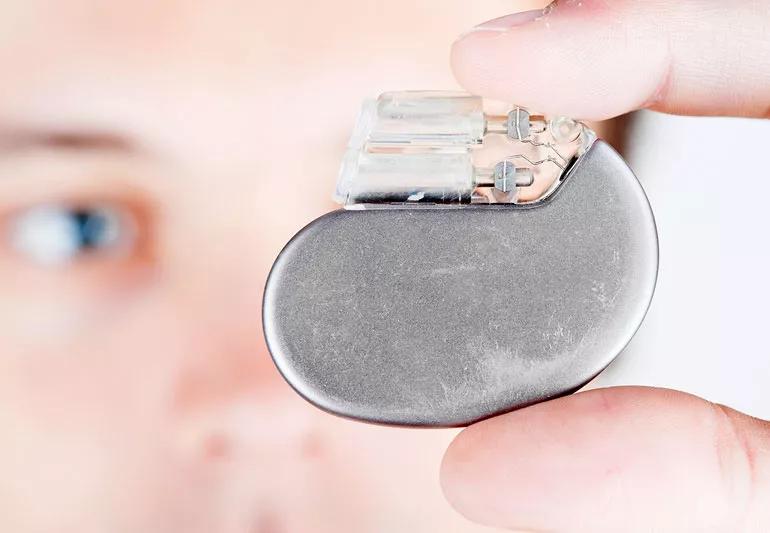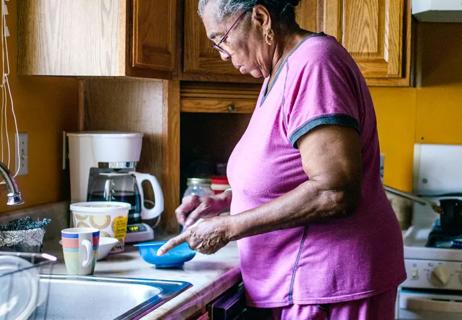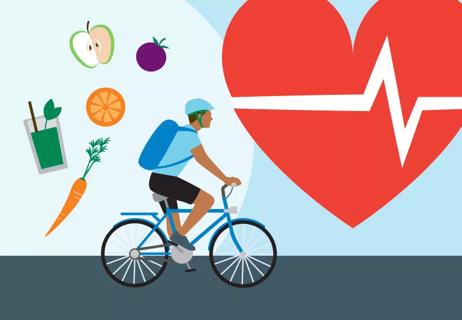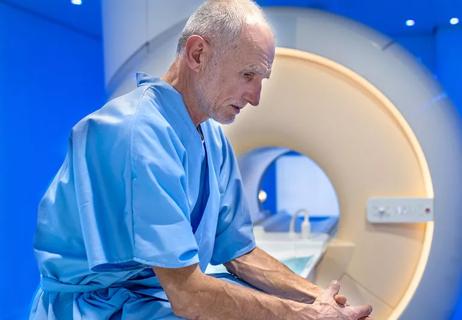Pacemakers steady heartbeat, ICDs reset the heart

If your heart isn’t beating at the right rate or rhythm, doctors have several options to help you. Pacemakers and defibrillators help pace your heartbeat when heart disease and other conditions play havoc with heart rhythms.
Advertisement
Cleveland Clinic is a non-profit academic medical center. Advertising on our site helps support our mission. We do not endorse non-Cleveland Clinic products or services. Policy
Normally, electrical impulses generated in your heart stimulate it to contract. This moves blood through your heart, to your lungs, allowing oxygenated blood back in, and then forcefully pumping it out to your body and brain.
If the electrical impulses are interrupted for any reason, your heart rate can go too slowly and that may make a pacemaker necessary. But if the electrical impulses disorganize, your heart may go too rapidly and require an implantable defibrillator.
Cardiologist Bruce Wilkoff, MD, answers important questions about pacemakers and defibrillators (ICD).
Pacemakers are implantable devices that consist of:
Pacemakers can help:
Dr. Wilkoff says, “Pacemakers are designed to keep your heart from going too slowly and this helps your heart to pump more blood to your body. Defibrillators rescue the heart from a rapid and confused heart rhythm which is usually fatal. Some people need help with both problems.”
Advertisement
There are four basic kinds of pacemakers:
Implantable cardioverter defibrillators (ICDs) are devices that send a strong “reset” signal to your heart when the bottom chambers of your heart (ventricles) are beating very fast or erratically. These ventricular arrhythmias can occur without warning and are often fatal.
Almost 95% of all people who experience cardiac arrest die before ever reaching a hospital. Defibrillators can help:
Yes. But most defibrillators also have pacemaker abilities. If you have heart failure, a combination biventricular-defibrillator device helps your heart to pump blood more forcefully. It also protects you against potentially fatal arrhythmias.
For others, the defibrillator protects against life threatening arrhythmias and the pacemaker backs up your heart rate if it gets too slow. Often the defibrillator can also use the pacemaker to slow down the fast heart rhythms.
There is a newer defibrillator where the lead is placed under your skin instead of through your veins. This type doesn’t pace but is better under some conditions that your doctor can explain, says Dr. Wilkoff.
No. Dangerous rhythm disorders can affect young people too. When athletes collapse on the field after practice, the culprit often is some form of heart rhythm abnormality.
In both cases, the defibrillator can detect when your heart starts to quiver or beat erratically and reset it, saving your life.
In order to determine what type of device is appropriate for you, your cardiologist will order tests to determine what type of rhythm disorder you have and if you need treatment.
Advertisement

Sign up for our Health Essentials emails for expert guidance on nutrition, fitness, sleep, skin care and more.
Learn more about our editorial process.
Advertisement

Your scar will heal best if you keep the area clean, dry and covered for an appropriate amount of time

Fainting, heart palpitations and shortness of breath are just a few signs your heart may need help

It’s important to remember that not everyone heals at the same rate

Complications related to the implanted device leads may go unnoticed

Glitches are possible but unlikely

Keep the area clean and monitor your incision site for discharge, odor or a change in appearance

Making healthy lifestyle changes ahead of surgery can help you avoid AFib after

What to know about cardiac implants and imaging tests

Even small moments of time outdoors can help reduce stress, boost mood and restore a sense of calm

A correct prescription helps your eyes see clearly — but as natural changes occur, you may need stronger or different eyeglasses

Both are medical emergencies, but they are very distinct events with different causes